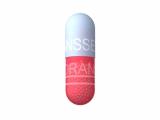- Bestsellers
- Alcoholism
- COVID-19
- Allergy
- Alzheimers
- Anti-Inflammatory
- Anti Fungal
- Anti Viral
- Anti-Depressants
- Antibacterial
- Antiparasitic
- Antibiotics
- Arthritis
- Asthma
- Birth Control
- Blood Pressure
- Cancer
- Cardiovascular
- Cholesterol
- Diabetes
- Diuretics
- Erectile Dysfunction
- Eye Drop
- Gastro Health
- General Health
- Hair Loss
- Hepatitis C Virus (HCV)
- Herbals
- HIV
- Hormones
- Men's ED Packs
- Men's Health
- Parkinson’s Disease
- Mental Illness
- Motion Sickness
- Muscle Relaxant
- Pain Relief
- Quit Smoking
- Skin Care
- Sleeping Aids
- Women's Health
- Weight Loss

Itraconazole is an antifungal medication used to treat a range of fungal infections, from skin infections to more severe systemic conditions. It works by inhibiting fungal cell growth. While generally well tolerated, it can cause side effects like nausea and liver issues, especially with long-term use. Regular medical check-ups are important to ensure safe use and avoid potential drug interactions.
Common use
Itraconazole is an antifungal medication used to treat a variety of fungal infections, including aspergillosis, blastomycosis, histoplasmosis, and fungal infections of the nails. It works by inhibiting the growth of fungi, preventing them from reproducing and spreading.
Dosage and direction
Take Itraconazole exactly as prescribed by your doctor. The medication is usually taken once or twice a day with food. Swallow the capsule or tablet whole—do not crush or chew it. For certain infections, the dosage may vary.
Precautions
Inform your doctor if you have liver or kidney problems, heart disease, or a history of fungal infections. Itraconazole can interact with many other medications, so it’s important to discuss your full medication list with your healthcare provider.
Contraindications
Do not use Itraconazole if you are allergic to it or any of its ingredients. It should not be used in patients with severe liver disease, or those who are taking certain medications, such as some antifungals, certain antibiotics, or medications for HIV.
Possible side effect
Common side effects include nausea, diarrhea, stomach pain, headache, and dizziness. Serious side effects can include liver damage, heart failure, or severe allergic reactions.
Drug interaction
Itraconazole can interact with various drugs, such as antacids, benzodiazepines, blood thinners, and certain HIV medications. Always inform your doctor about all the medications and supplements you are taking.
Missed dose
If you miss a dose, take it as soon as you remember, unless it’s almost time for your next dose. In that case, skip the missed dose—do not double up to make up for a missed dose.
Overdose
Symptoms of overdose may include nausea, vomiting, or abdominal pain. Seek immediate medical attention if overdose is suspected.
Storage
Store Itraconazole at room temperature, away from moisture and heat. Keep the medication in its original packaging and out of reach of children.
Disclaimer
We provide only general information about medications which does not cover all directions, possible drug integrations, or precautions. Information at the site cannot be used for self-treatment and self-diagnosis. Any specific instructions for a particular patient should be agreed with your health care adviser or doctor in charge of the case. We disclaim reliability of this information and mistakes it could contain. We are not responsible for any direct, indirect, special or other indirect damage as a result of any use of the information on this site and also for consequences of self-treatment.



| Country | Shipping method | Delivery time | Price | |
 Delivery Delivery |
14-21 days | 10$ | Tracking# available in 4 days | |
 Delivery Delivery |
9-14 days | 30$ | Tracking# available in 2 days |
Shipping worldwide
Confidentiality and anonymity guarantee
Safe and secure
Discrete looking packages
Dispatch orders within 24 hours
100% success delivery







